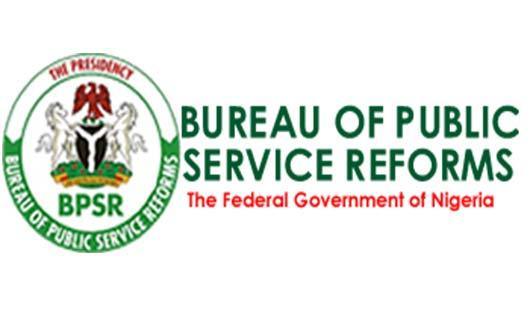382
By Daniel Adaji
The Bureau of Public Service Reforms (BPSR) in collaboration with the Centre for Fiscal Transparency and Public Integrity (CeFTPI), has urged Ministries, Departments and Agencies (MDAs) in Nigeria to proactively publish governance-related data on their websites.
This in accordance with the newly released 2025 Transparency and Integrity Index (TII) Methodology Handbook.
The updated TII framework was obtained by pointblanknews.com from the centre on Monday.
The Index now in its fifth year assesses over 500 institutions across five governance pillars: Fiscal Transparency, Open Procurement, Control of Corruption, Human Resources and Inclusion, and Citizens Engagement.
The hand book’s methodology which is rooted in both local laws and global conventions like the United Nations Convention Against Corruption, is intended to build public trust by holding institutions accountable through transparency.
Dr. Nnamdi Mbaeri, Permanent Secretary of the General Services Office, Representing the Secretary to the Government of the Federation at the unveiling in Abuja, said the TII is a viable tool for institutional reform.
“Transparency and integrity are not optional virtues, they are the very foundation of public trust. By implementing the TII methodology, we can catalyze a paradigm shift towards greater accountability, transparency, and inclusivity in governance,” he said.
Mbaeri called on MDAs to adopt the Index methodology, stating it has the potential to significantly enhance service delivery and ethical procurement practices.
Director-General BPSR, Mr. Dasuki Arabi, noted the increasing responsiveness of MDAs to the transparency criteria.
“There is a clear indication that MDAs’ responsiveness to the transparency methodology has increased. The updated 2025 methodology reflects evolving governance challenges and equips institutions with tools for continuous improvement,” Arabi said.
He added that the Index supports the implementation of Executive Order 001, which mandates transparency in public service delivery, and aligns with broader reform goals of the Tinubu administration.
Presenting the revised framework, CeFTPI’s Executive Director, Dr. Umar Yakubu, emphasised the role of proactive disclosure in strengthening institutional integrity.
“Institutions are assessed on their publication of statutory information, such as budget allocations, procurement records, staff data, and anti-corruption policies, on their websites,” he explained.
“Each of the five assessment categories carries equal weighting, and performance is scored based on accessibility, completeness, and compliance with legal standards,” he added.
Yakubu clarified that the TII is not a punitive tool but a mechanism for institutional self-reflection and reform.
“The TII is a preventive mechanism against corruption. We encourage MDAs to study the assessment methodology carefully and take deliberate steps to improve their openness and public accountability,” he said.
The handbook outlines scoring methods based on compliance with legal mandates such as the Freedom of Information Act, Fiscal Responsibility Act, and Executive Order 001.
Major areas of assessment include the online publication of procurement records, budgetary data, staff information, anti-corruption policies, and interactive citizen engagement platforms.
While the 2025 evaluation cycle is ongoing, final ranking of the MDAs is expected to be released on September 28, coinciding with the International Day for Universal Access to Information.



